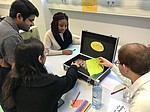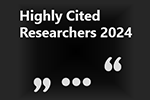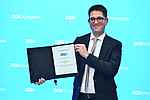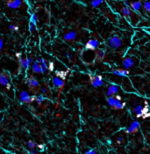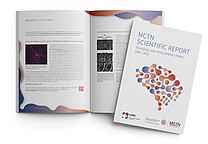Sie befinden sich hier
Inhalt
The Mannheim Center for Translational Neuroscience (MCTN) at Heidelberg University provides a platform for basic research-oriented, translational and clinical neuroscientists from the Medical Faculty Mannheim to work closely with the Central Institute for Mental Health, the life science research institutions of the University Heidelberg and with the non-university research institutions in the Rhine-Neckar metropolitan area.
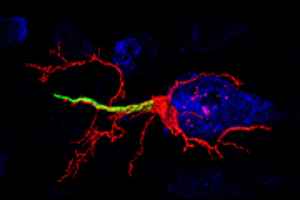

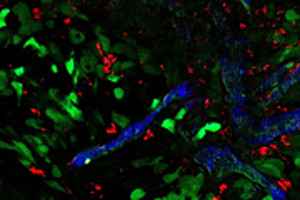
Upcoming Talks and Events
News
Sven Wischnewski has been awarded the Myositis Young Investigator Award by the German Society for Muscle Diseases for his research on inclusion body myositis. He received the award at the 27th DGM Congress in Giessen on March 20. read more …
On 17-19 February, the MCTN hosted an exciting Innovation Bootcamp & Equality, Diversity and Inclusion Workshop at the Mannheim Medical Faculty for the students of the GLIORESOLVE project, an EU-funded research project within the Horizon Europe programme focusing on glioblastoma. read more …
Engineered T cells targeting the glioblastoma antigen PTPRZ1 show potent, selective killing of tumor cells, particularly glioblastoma stem cells, without off-target effects. In experimental brain tumors, these TCR-T cells demonstrate efficacy, persistence, and a stem-cell memory phenotype, offering a promising new strategy for glioblastoma treatment. read more …
Tobias Banaschewski, Michael Platten and Rolf-Detlef Treede among the most cited scientists 2024
Child and adolescent psychiatrist and psychotherapist Tobias Banaschewski of the Central Institute of Mental Health, neurologist and MCTN director Michael Platten and former MCTN co-director Rolf-Detlef Treede are among the 2024 Highly Cited Researchers! This incredible achievement reflects their dedication, expertise, and outstanding contributions to their respective fields. read more …
Thomas Kinfe appointed to endowed professorship for Neuromodulation and Neuroprosthetics

Thomas Kinfe has accepted an appointment as Professor for Neuromodulation and Neuroprosthetics at the Mannheim Medical Faculty of the University of Heidelberg. He is also a core member of the MCTN since October 2024. read more...
At the opening ceremony of the DGN Congress (November 6-9 in Berlin) Prof. Dr. Lucas Schirmer, Head of the Division of Neuroimmunology in the Department of Neurology at the UMM and personal core member at the MCTN, received the Science Award of the German Society of Neurology (DGN). With this award, the DGN honors Lucas Schirmer's outstanding scientific work in the field of translational neurobiology. In recent years, three of the awardee's highly published papers can be described as milestones in neuroimmunological research. read more …
An international team of researchers has investigated the composition and communication of cells in so-called subcortical lesions, tissue damage to deep brain structures at different stages of multiple sclerosis (MS). They have gained deep insights into the molecular mechanisms that influence the progression of this chronic disease. read more …
Kontextspalte
Mannheim Center for
Translational Neuroscience
Medical Faculty Mannheim Heidelberg University
Theodor Kutzer-Ufer 1-3
68167 Mannheim
Phone +49 621 383-8066
mctn@medma.uni-heidelberg.de
Twitter/X @MCTNeuroscience:
twitter.com/MCTNeuroscience
SCIENTIFIC REPORT
CORE FACULTY
Prof. Dr. Michael Platten
(Director)
Prof. Dr. Andreas Meyer-Lindenberg
(Co-Director)
Prof. Dr. Simon Wiegert
(Co-Director)
Prof. Dr. Thomas M. Kinfe
ALUMNI
Prof. Dr. Rolf-Detlef Treede
(former MCTN Co-Director)
Prof. Dr. Martin Bohus
Prof. Dr. Christoph Groden
Prof. Dr. Jochen Weishaupt


